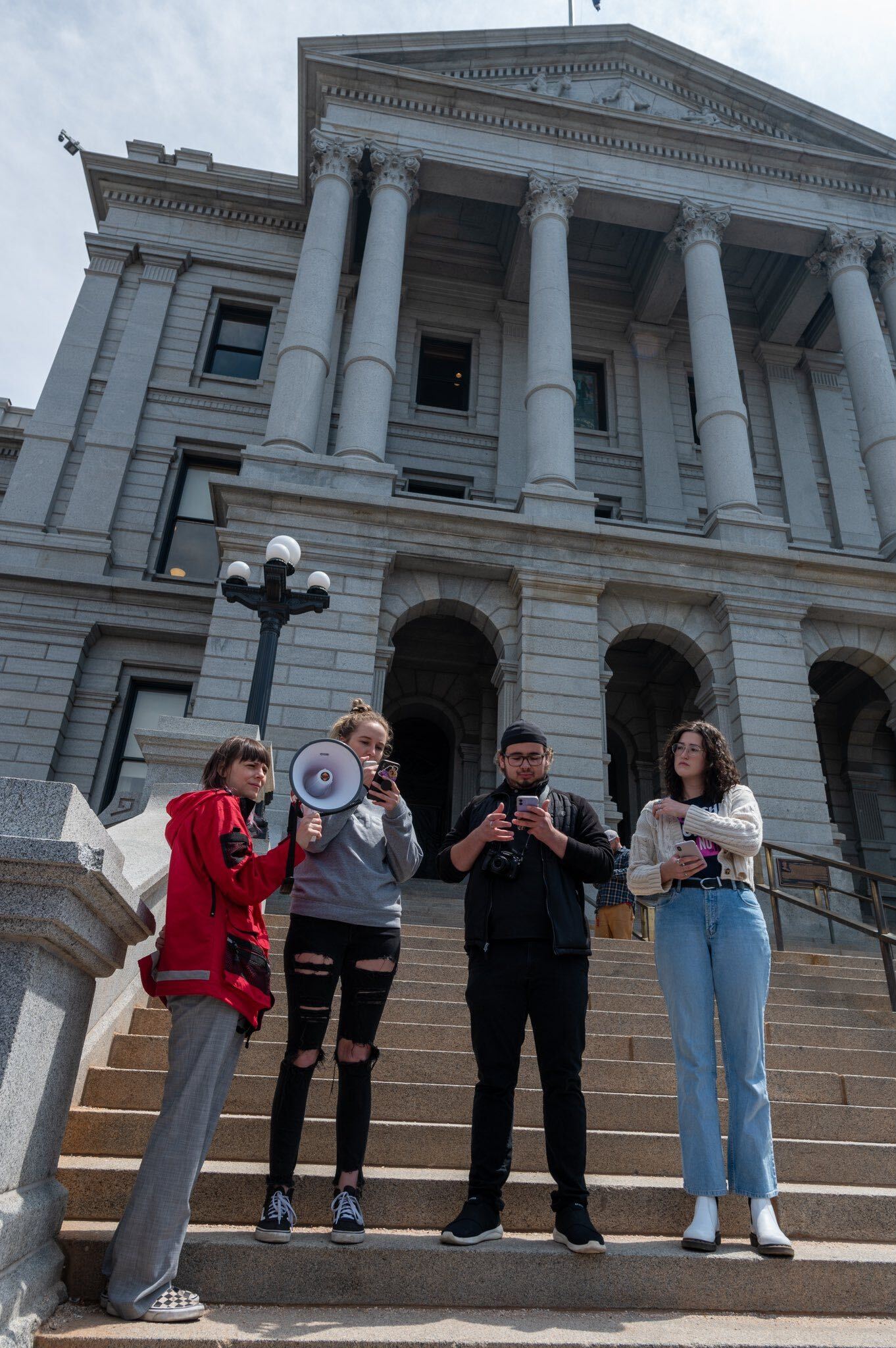An Organizer’s Perspective: Reproductive Rights are on the Ballot
October 31, 2022

By Evaristo Gomez, Boulder Youth Agenda Organizer
Organizing is not for the faint of heart. It can be discouraging trying to engage with young people who are apathetic or angry, but the impact we can make is what brings us back to this demanding work. We advocate for people; we empower people. By telling people about the tools at their disposal, we give people hope in ways they often can’t dream of in other parts of the country. This is especially true for abortion care and reproductive rights.
The Reproductive Health Equity Act
Young people see abortion rights as key to establishing bodily autonomy, preserving a person’s right to decide their own future, and fostering thriving communities. I saw this throughout the 2022 legislative session when New Era advocated for HB22-1279, the Reproductive Health Equity Act (RHEA). Passed due to work from Latina-led reproductive justice organization COLOR and reproductive rights advocacy organization Cobalt, this legislation guarantees all people in Colorado–including those who travel here–the fundamental right to make reproductive care decisions free from government interference. Support for the bill came from many different people from many different walks of life, from young people fighting for a more autonomous future as well as parents defining the many reasons they made the decision to have an abortion.
My mom was one of the many advocates who helped our state legislators understand the importance of having a choice. While she ultimately did not end up choosing to have the abortion, she shared how much she valued her role as the decision-maker in her own future after being informed of all possible options by her healthcare provider. My mother and all the testimonies shared in support of RHEA revealed more of the story behind reproductive health care. However, one of the most challenging aspects of being a part of the movement was finding my place in the movement as a non-birthing person.
From Allyship to Activism
As a cisgender Latine man, the weight of losing the federal legal protections to abortion and reproductive freedoms does not directly land on me. As a non-birthing person, I hold the privilege of having a voice on an issue that does not directly impact my personhood; the weight of abortion falls in my head, not within my body.
Often it is non-birthing people who are the loudest against the right to abortion care. So, my voice needs to be loud, too, to push against the harmful narratives that undermine a person’s reproductive rights. At work, this looks like standing firm in my beliefs in the face of hateful rhetoric we can hear from people while in community. Outside of work, these conversations are trickier to navigate — especially when it’s your friends and family.

Dealing with machismo and toxic gender norms is nothing new for a Latino. My discussions, charged with years of fighting stigmas as a gay man, are intentional. It did not matter where we were; we could have been eating dinner at the nicest of restaurants and, if someone spoke of abortion, I would not shy away from the topic. There were verbal arguments in bars; I even got into a fight at a thrift store with my brother because, as a person training to become an EMT, he thought he knew more about pregnancy and birth than my mom and my grandmother.
Together, the two birthed and raised a total of five children.
I have the hard conversations because it’s important to give people hope when it seems like all else has failed. RHEA protects abortion access for all in Colorado, but we are a single state in the Union. Peoples’ power is the road to progress for the reproductive rights movement. Although abortion is legal in our state, it is still not always accessible or affordable for young people, low income communities, rural communities and communities of color to receive care.
Abortion access is a critical issue for young people across the country, now and outside of major election years. When you fill out your ballot, ask yourself: Does this protect reproductive care? Does this advance reproductive rights?
We all carry this weight in different way and, until abortion is available and accessible to everyone, it’s up to all of us to advocate for birthing people’s right to bodily autonomy and reproductive care. That can start with filling out your ballot.